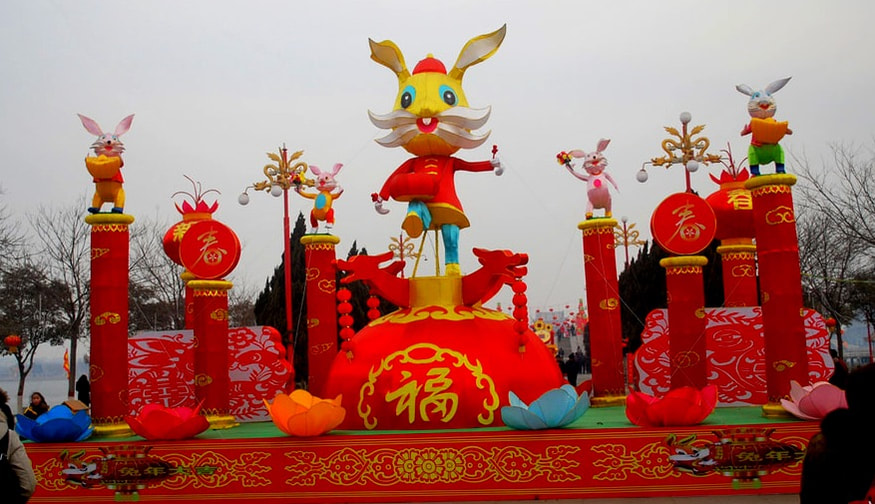|
Wishing you New Year Goodness! Sshin-nyen haoww (Mandarin pronunciation) The Chinese culture is unique because it is not only one of the oldest civilizations in history, but also the longest continuous culture that has lasted for over 5,000 years and is still going today. The ancient Chinese people had invented paper and printing press that led to development of calligraphy and literature. They have made some huge contributions towards other notable inventions like the compass, umbrella, drums, flutes, harps, seismoscope, noodles, silk clothing, bank notes, acupuncture, and irrigation.
Every year, people of the Chinese culture from all around the world, celebrate this time of year with good luck rites, house cleaning, family feasts, and fireworks. The next few weeks are set aside as a time to honor household and heavenly deities as well as ancestors. Unlike our western Gregorian calendar, the Chinese calendar runs in accordance with lunar-solar observations; therefore, the date for the new year changes from year to year. This year, it starts on January 22nd. Celebrations will occur the day before and continue until the Lantern Festival, the 15th day of the new year to decline the darkness of winter and move into the night as a community with human-made light. People create paper lanterns to symbolize the sun, light, warmth, and a physical prayer to the Sun for it to come back. Lighting lanterns is a way for people to pray that they will have smooth futures and express their best wishes for their families (China Highlights). This marks the beginning of Spring. After the Lantern Festival, Chinese New Year taboos are no longer in effect, and all New Year decorations are taken down. According to tradition, people must stay up late on New Year’s Eve to welcome the New Year, and then to let off fireworks to scare off ominous spirits and Nian, the New Year dragon monster. Chinese are careful of their actions on these two days as they will prophecy their upcoming year. In the first five days of the New Year, people eat long noodles to symbolize long life. On the 15th and final day of the New Year, round dumplings shaped like the full moon are shared as a sign of the family unit and of perfection (History.com). One legend states that hanging your hopes for the coming year on a Wishing Tree (synonymous with good luck and fortune) will encourage your dreams to come true. Further, some Chinese people refrain from regular routines such as hair and laundry washing in honor of the water god, celebrated on these days.
0 Comments
|
Hannah Faulkner
|













 RSS Feed
RSS Feed